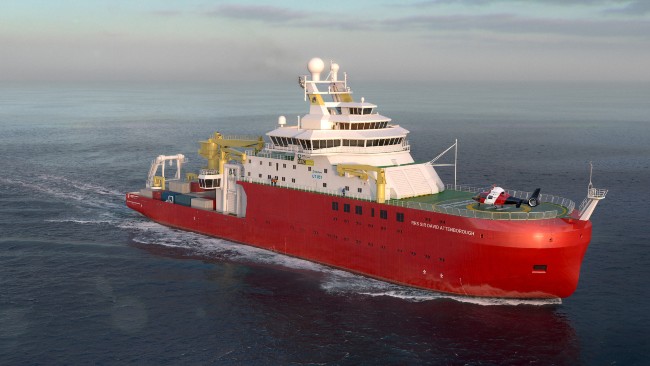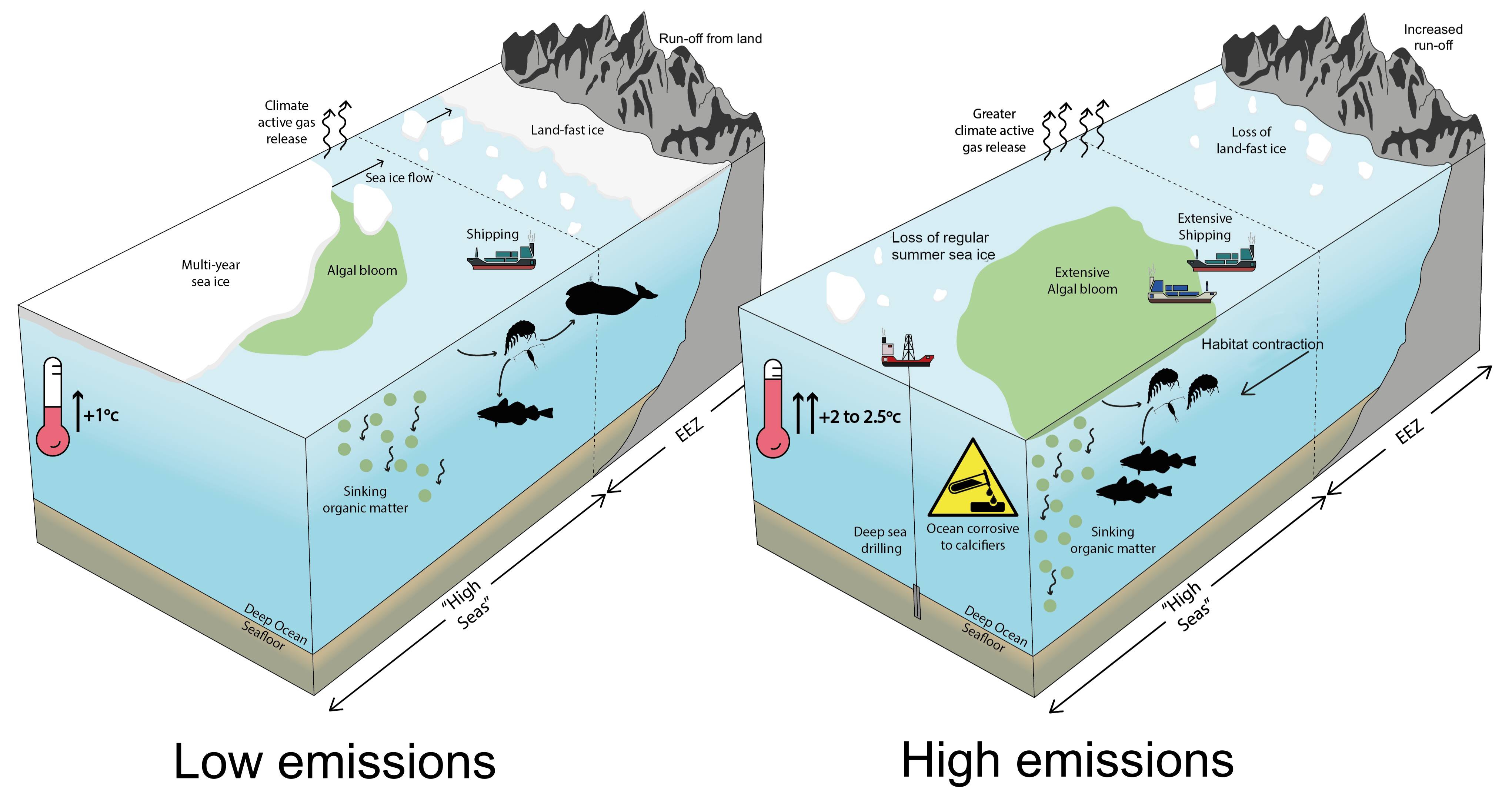
Policy priorities in a Changing Arctic Ocean
The research was conducted through a review of the science and policy literature, and consultation with national and international stakeholders. It has produced a comprehensive overview of past, current and future research activity in the Central Arctic Ocean (CAO), and outlined the geopolitical and legal structures governing relationships in the region.
The CAO plays a pivotal role in regional and global climate and ocean circulation, and influences UK weather patterns. In order to formulate appropriate policy responses to climate change, we need to align the key scientific and policy questions surrounding the CAO, which currently remain largely unanswered.
The CAO is experiencing unprecedented changes in temperature, sea ice coverage and thickness, and biology, as well as acidification and pollution.
The extent to which these changes, which are already underway, will continue, accelerate or potentially reverse depends on our actions (see diagram below demonstrating different low vs high emissions scenarios).
In addition to the complex physical changes occurring in the CAO, the region is also subject to geopolitical complexity. Jurisdiction of the CAO doesn’t clearly sit under a single body as it is defined as being international waters, and governed by fragmentary legislative frameworks and processes. Decision making is complex, thereby limiting the capacity of the Arctic governance system to respond to climatic change and improve resilience.
Policy Implications and recommendations
The Central Arctic Ocean is both highly sensitive to climatic change and a driver of regional and global climate, impacting global ocean circulation and weather patterns. More needs to be known about current environmental change, and how the CAO might be impacted in the future, in order to formulate appropriate climate change mitigation measures nationally and internationally.
The UK has a timely opportunity to position itself as a world leader in the research field and to underpin excellence in research with strong international relationships and collaboration, which become ever more critical as we exit the EU. Glasgow is hosting the UN Framework Convention on Climate Change (UNFCCC) Conference of the Parties (COP26) in 2020, and the international focus will be on the UK, meaning that it is essential to be seen to be playing a leading role in climate research and actively investing at this time.
Recommendations to UK Government Policy Makers
Take advantage of UK’s cutting-edge capabilities and technology – especially in the form of the new polar research vessel the RRS Sir David Attenborough.
Increase investment in people and proven international networks to solve some of the challenges that face the CAO.
Build on momentum from the COP26 in Glasgow 2020 to position the UK as a focal point for global agenda setting and international collaborations for ambitious scientific endeavours.
Place an emphasis on co-benefits between Arctic States, Indigenous Peoples and the UK, and give due consideration to the dual priorities of sustainable development and environmental protection; utilise UK Research and Innovation funding streams to solve the broad, cross-discipline questions surrounding the future of the CAO.
Address matters of governance, which requires further integration and development, especially in terms of legal frameworks and precautionary legislation.
Provide funding for outreach and education activities. Secure funds and support schemes to build the careers of the next generation of scientists, from school students to Early Career Researchers (ECRs).

Key Findings
The CAO is subject to multiple types of change and risk (e.g. changes to sea ice, increased shipping, noise and pollution). These changes will have knock-on effects for marine ecosystems including fish stocks, which are currently protected under an international agreement.
Due to the complex governance system surrounding the CAO, the international community’s ability to respond to climatic change is limited; managing levels and rates of change will be challenging.
The UK is in a strong position to lead in policyrelevant Arctic research, with world-leading researchers, strengths in training and supporting the next generation of scientists, and strengths in engineering sciences, especially in autonomous underwater robotics and drones.
The UK has a good track record in cross-discipline collaboration, such as the UK Arctic and Antarctic Partnership and NERC Changing Arctic Ocean Programme, and an existing pool of cutting-edge infrastructure, oceanographic equipment and data management.
The UK has a history of active engagement in international flagship programs e.g. Multidisciplinary drifting Observatory for the Study of Arctic Climate (MOSAiC), and funding cooperation on an international scale (e.g. UK government cross-department ‘International Ocean Strategy’). International links are going to be as important as ever as the UK exits the European Union.
The UK is in a good position to co-produce research with local communities and Indigenous Peoples Organisations, due to our track record in multidisciplinary research and incorporation of social sciences alongside climate experts.
The UK has existing science-into-policy organisations with priorities linked to the CAO e.g. Marine Science Coordination Committee (MSCC), Marine Climate Change Impacts Partnership (MCCIP).
The UK will be a focus point for international climate research as host of COP26 in 2020, and should fully engage with the UN Decade of Ocean Science for Sustainable Development.
Policy Briefing 81: March 2020
Policy Priorities in a Changing Central Arctic Ocean (PDF, 207kB)
Author
Contact the Researchers
Further Information
Foreign Commonwealth Office Arctic Policy Report: Beyond the Ice
Arctic Connections: Scotland’s Arctic Policy Framework
Multidisciplinary drifting Observatory for the Study of Arctic Climate (MOSAiC)
Marine Climate Change Impacts Partnership
For more information
